The BC SPCA has taken 83 Persian-mix cats into care after being contacted by the family of their late owner. Of these cats, sixty-three were transported through the Drive for Lives program to the BC SPCA Surrey animal centre, while the other twenty cats were brought to Kamloops. The BC SPCA’s Surrey animal centre and Good Shepherd Barn have become a triage facility for large cat intakes across the province.
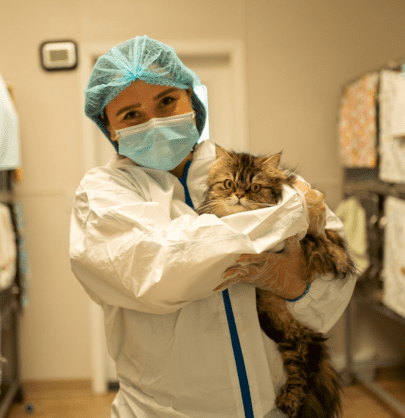
“Intaking and providing care for 83 cats requires a significant investment of resources,” says Layla Gilhooly, manager of the BC SPCA Surrey animal centre and Good Shepherd Barn. “Especially given their condition, with at least half of them still needing a spay or neuter surgery, various medical treatments, and most of them needing significant grooming.”
Gilhooly notes that the cats were originally fearful hiding under towels and in their kennels. “That’s expected,” she says. “Despite their nervousness, many of the cats were quite friendly during intake – purring, making air biscuits and leaning in for pets.”
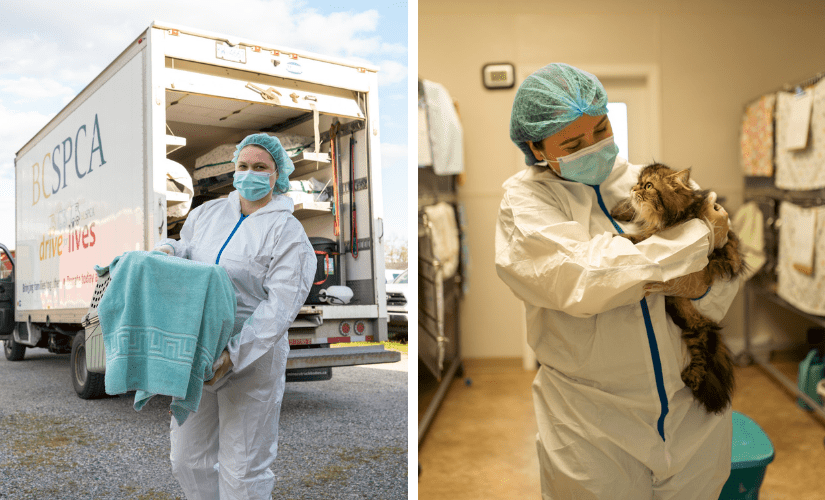
Gilhooly adds that a large number of the cats were extremely matted, with some requiring urgent shaves to relieve their discomfort. “Severe matting is very uncomfortable, often even painful, and can cause skin irritation as the mats trap bacteria and dead skin cells,” Gilhooly explains. “Some of the cats also had feces matted into their fur.”
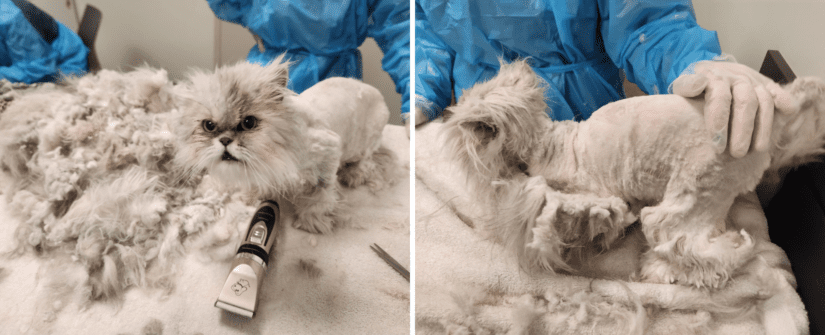
The cats are all being treated for giardia and roundworm. Treating Giardia requires a five-day course of medication, followed by a bath to remove any lingering eggs in the fur to prevent reinfection through a cat’s natural grooming.
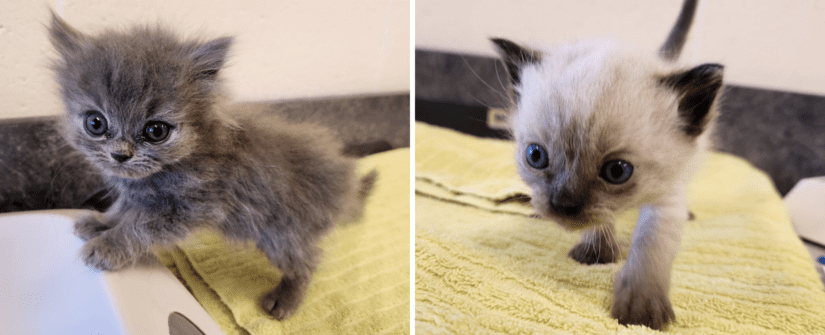
“Some of the cats also have varying degrees of upper respiratory infection,” says Gilhooly. The infections range from severe congestion, requiring regular nose cleaning, and frequent sneezing to milder cases of eye and nasal discharge. “Some of the cats are on antibiotics to clear up these infections. We are monitoring a few others to see if they recover by themselves. If their symptoms worsen, we will be taking them to a veterinary clinic for further treatment.”
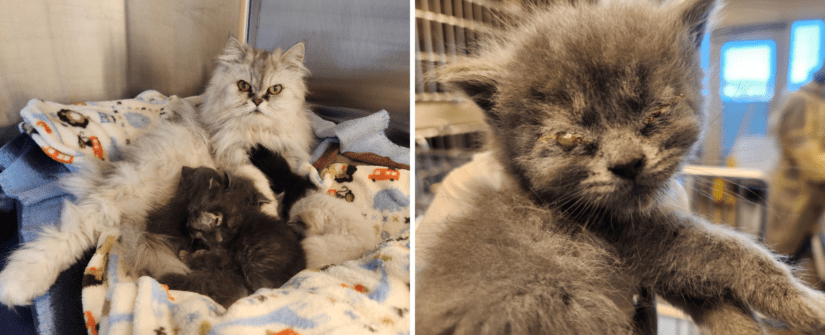
Gilhooly says most of the cats are underweight and a few of the cats have dental concerns including broken canine teeth and gingivitis.
Due to the time and space required to care for these cats, 27 of the cats triaged in Surrey have been transferred to other centres to find their forever homes; 36 remain at the Surrey centre.
Some of the cats will require further socialization before they will be available for adoption. Some will be available as early as tomorrow and others will be added to the BC SPCA’s adoption page over the next few weeks.
